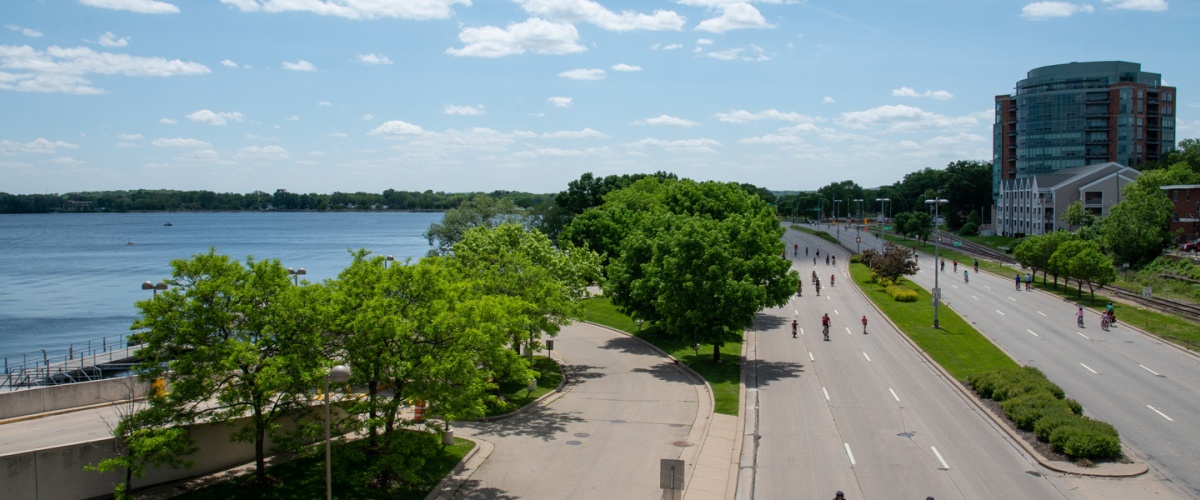
Mayor Calls for New Cut at Mowing Policy
Madison – Mayor Dave Cieslewicz said today that he would make adjustments in the city’s low mow policy based on the experience of the first several weeks of the growing season. “The reduced mowing policy has been very successful thus far in saving taxpayer dollars, reducing fuel costs and improving environmental conservation,” said Cieslewicz. “But as with any new program, adjustments and improvements can help make a good thing better, once we’ve had a chance to see what works well and what doesn’t.” The city has had a longstanding policy of reduced mowing in its parks. Prior to this year, about 1,300 of the 6,000 acres of City parkland was in the reduced mowing program. That was expanded in 2006 to include an additional 100 acres, an increase of 8%. Cieslewicz said the policy should be mended, but not ended, because it has several benefits: · It reduces air pollution and greenhouse gasses. Some of the mowers used heavily-polluting two stage engines, which contribute to bad air quality; they all produce carbon dioxide, the leading cause of global climate change. · It helps keep our lakes cleaner. More rainwater is absorbed in the low mow areas, meaning less polluted runoff into lakes and streams. · It provides more habitat for song birds and other wildlife. · It can provide better aesthetics given enough time. Grass prairies were a native landscape in south central Wisconsin and they can be more beautiful than mowed grass, especially since strict policies prohibit most uses of herbicides in Madison parks and medians. But they take time to grow up and to choke out unwanted weeds like dandelions. · It saves energy. With fuel prices higher than ever, this is more important then ever. · It saves money. More than $50,000 will be saved this year alone. Nonetheless, to respond to public concerns about the low mow expansion this year, Cieslewicz is directing the following steps be taken: 1. Immediate median mowing. The city has already begun mowing all medians under its jurisdiction with the exception of John Nolen Drive between Olin Avenue and Rimrock Road. That area is being used as a test area to measure savings and other benefits and to see how a median might be made more aesthetically pleasing without mowing. Cieslewicz emphasized that mowing for many area roadsides, such as the Beltline, are the responsibility of the State Department of Transportation, not the City of Madison. 2. Review of low mow areas in parks. Earlier this year the Parks Commission approved detailed plans for expanded low mow areas in parks. Most have not been controversial, but Cieslewicz is asking Parks Department staff to review where complaints have come from and, where justified, begin mowing in those areas after a review with his office and the Parks Commission chairman as well as the alders from the effected areas. 3. Study of long-term benefits of low mow areas in parks and medians. The Mayor has asked the Parks staff to keep track of how much fuel and money is saved per acre and how many pounds of pollutants are not emitted into the air. He has also asked for an estimate of the tons of runoff saved through better infiltration. 4. Development of a Great Parks Program. As part of its 2007 budget submission, the Mayor is asking the Parks Department to develop a long-term program that would increase both parks maintenance and low mow areas. “What we need is excellence in both areas,” Cieslewicz said. “Where we mow and trim our parks and medians they should look sharp, and where we have low mow areas they should look natural. Both can look great but in different ways.” 5. Public education effort. Part of the problem is that the first year of a low mow area can produce ugly results while the short and long-term benefits of the program are not apparent. Later this summer the mayor's office, in cooperation with Parks and Information Services, will develop a page on the City’s web site explaining the benefits of the program and asking for customer feedback. Cieslewicz emphasized that the Parks Department staff is doing a great job with limited resources. “Madison’s Parks Department staff, like the rest of city government, is serving a growing community without a corresponding increase in their budget. The reduced mowing policy is an innovative way for them to meet the community’s needs, while operating within a very tight budgetary environment.”
